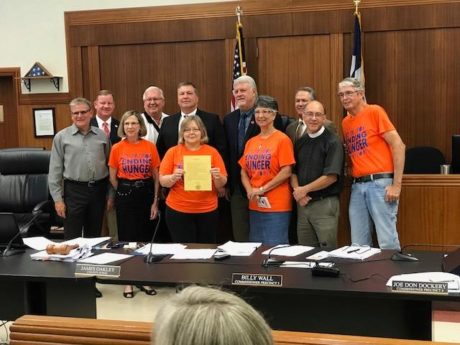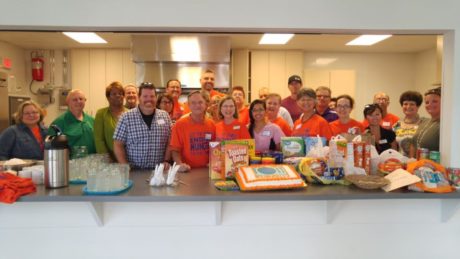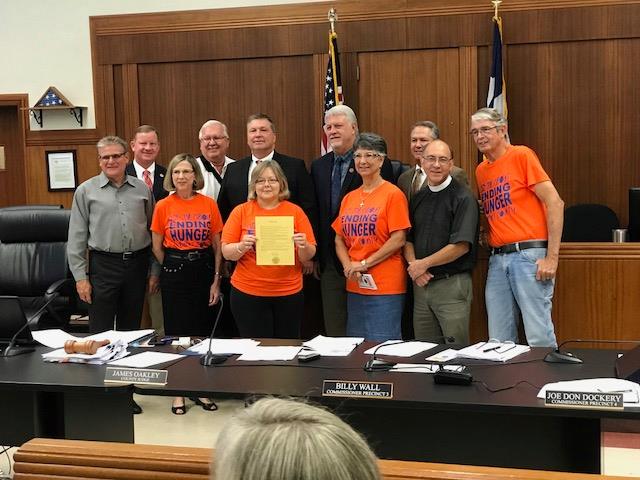
What would your response be if someone told you that the problem of hunger was solvable in your lifetime? That was the starting point for the Burnet County Hunger Alliance, after Pam Rodgers attended a workshop from Texas Hunger Initiative on the “Ethics of Hunger.” Rodgers and other congregation members from Trinity Episcopal Church in Marble Falls recognized that they could play a role in solving the issue of hunger in their community, and started a plan to do just that.
This summer marks the fourth year that the Burnet County Hunger Alliance has served the community, and the group continues to innovate and react to the needs of their neighbors. The coalition works with different food pantries, churches, businesses and civic organizations, the Burnet County Hunger Alliance is able to identify gaps in food assistance. One of the important decisions they made was to not become a non-profit organization, which allows them to serve as a mediator and collaborator between the existing food pantries and non-profit organizations in the area. While food pantries, church ministries, and other assistance programs have long been available, before the Hunger Alliance was formed there was no system in place for these groups to communicate needs or share what they had learned. The alliance meets quarterly and the organizations have the capacity to share and work together to fill the needs of the community.
Along the way, the group has continually learned how to best serve others. They have navigated the complex relationships and stigmas people associate with “assistance” programs, “hand-outs,” and even “government aid.” They’ve learned that community meals can be an effective way to feed others without stigma.
Taking the community’s needs into account also means focusing on the needs of children. One in five children in Burnet County isfood insecure, meaning they have limited access to food or don’t have access to nutritional food. More than 60% of children in the county qualify for free or reduced-cost school lunches and the Burnet County Hunger Alliance works to make sure that summers are covered for those children.
One special consideration for children is their food preferences. While children may have little or no choice at school, members say it’s unhelpful to feed children if they won’t eat what they are served. So over the summer, the group works to provide healthy meals that children will enjoy and a place for children to eat together indoors with air conditioning.
COVID-19 has only exacerbated many of the problems that cause hunger. Increased unemployment and reduced hours have increased food insecurity. In addition, there’s also the issue that usual gatherings to serve food and eat together are now unsafe.

This summer, the Highland Lakes Crisis Network, which is a member of the Hunger Alliance, rose to the occasion of responding to COVID and began providing meals to people who were sequestered at home. The Hunger Alliance then collaborated wit the Boys and Girls Club and the Highland Lakes Crisis Network to add 200 additional meals to the 500 meals the Crisis Network was already providing. The Hunger Alliance helped provide some funding to help offset the cost of these additional meals.
By building relationships, listening to the needs and preferences of their community, and working in coalition, the Burnet County Hunger Alliance is filling in the gaps to better serve the hunger needs of their community.
